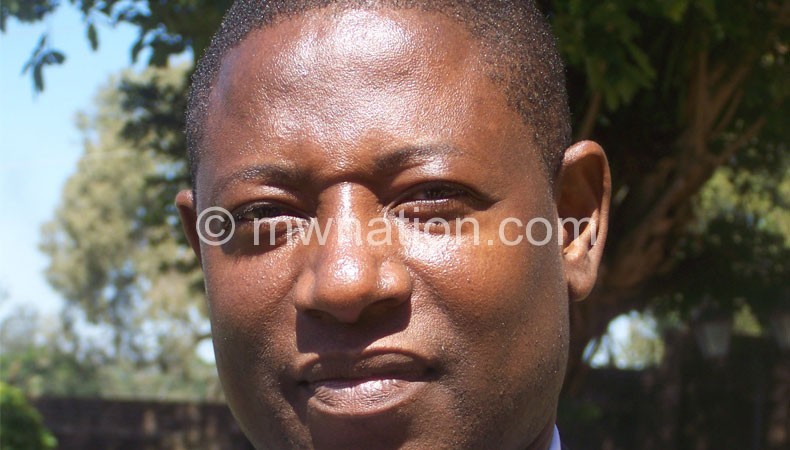Macra in legal fees shock
The Malawi Communications Regulatory Authority (Macra) and Kaphale Lawyers are embroiled in a dispute over legal fees that sources say the latter pegged at K1 billion. The fees—a fraction of the value of the law suit—come after Kaphale Lawyers successfully represented Macra in a Malawi Mobile licence dispute that would have cost the regulator at least K55 billion had it lost an appeal of a High Court decision.
Macra, which believes the fees are on the higher side, has since referred the matter to the Ministry of Justice—where the former senior partner at the firm Kalekeni Kaphale—is Attorney General (AG).

And to avoid conflict of interest—despite the AG resigning from the law firm he founded—Kaphale has left the matter in the hands of Solicitor General Janet Banda to act as government’s chief legal adviser in this particular case.
Malawi Mobile successfully sued Macra in 2002 for cancelling a licence to start telecommunications services apparently because it had taken too long to roll out.
The High Court then ordered Macra to give the company a K55 billion ($132 million dollars) compensation.
But the authority, through Kaphale, successfully appealed the matter hence the demand for payment.
According to communication we have seen, the law firm first alerted Macra in November 2014 that the regulatory authority should pay it 1.5 percent of the savings from the judgment of appeal.
“We have been informed that the Malawi Supreme Court of Appeal will deliver the judgment on appeal in the month of December 2014. Please note. Please be reminded that we have not issued any bill for all proceedings on appeal. We advise that our legal fees shall be 1.5 percent of the savings from judgment on appeal,” reads a letter from the firm addressed to Macra’s director general prior to the Supreme Court ruling.

The 1.5 percent of K55 billion which Macra is disputing hovers around K1 billion.
Meanwhile, well-placed sources at Macra and Kaphale Lawyers corroborated in separate interviews on Friday that the law firm has since withdrawn the controversial invoice in favour of a negotiated settlement to be facilitated by the Solicitor General.
The sources said following the withdrawal of the written demand of the legal fees, the two parties are engaged in negotiations, which may result in a lower figure.
“The two sides have excellent relations and Macra depends on the law firm for a number of crucial legal cases, hence does not want to jeopardise its relationship, but has vehemently rejected a fee which could have resulted in a huge cost to the taxpayer,” said a Macra source.
Kaphale on Thursday refused to comment on the stand-off, saying he was not the best-placed person to speak on the matter.
On her part, Banda—who doubles as Secretary for Justice—on Friday confirmed in an interview that the Ministry of Justice received a letter from Macra demanding advice on the matter.
She dismissed fears of conflict of interest on the part of the AG, saying the matter was being handled by her office as Solicitor General and that the AG was not involved in the matter.
“We have indeed received the letter from Macra through the Ministry of Information and we will be engaging the lawyers to chat a way forward,” said Banda.
Macra director general Andrew Kumbatira, in a separate interview, said they are yet to get a bill of demand from the firm as they are still negotiating.
“All I can say for certainty on the matter is that we are still discussing the matter. They have not given us a bill or a demand. However, we do not want to do our operations in public,” said Kumbatira.
Ted Loka, a partner at Kalekeni Kaphale Lawyers, also confirmed that the firm earlier wrote Macra on the matter, but said since the ruling, the two sides have engaged in further discussions.
“We have not given them any bill. We sent that letter before the ruling and following the ruling we have gone beyond that; we have been negotiating on the exact legal [fees],” said Loka who could not reveal the fresh amount the firm is now demanding.
But responding to an e-mail questionnaire on guidelines for legal fees, Malawi Law Society (MLS) honorary secretary Khumbo Soko said legal fees are not supposed to be charged retrogressively.
“A lawyer is under an ethical duty to provide to the client before or within a reasonable time after commencing representation as much information regarding fees and expenses as is practical. This should not be done retrospectively,” said Soko.
Asked whether legal fees charged on premise of money saved are acceptable, Soko said this is in order depending on the situation, but said reasonableness is the guiding principle.
He said such charges are only acceptable as contingency fee basis when a client is unable to pay for his legal fees.
“What you are referring to might be situations where a lawyer accepts instructions on a contingency fee basis. This means that the fees may be charged as a percentage of, say, the compensation or damages awarded. The law regulating the profession requires, however, that the fees so levied should be fair and reasonable in the circumstances.
“As to the amount of the fees, we are required to take into consideration among other things, the complexity of the matter, time and effort expended and importance of the matter to the client,” he said.





